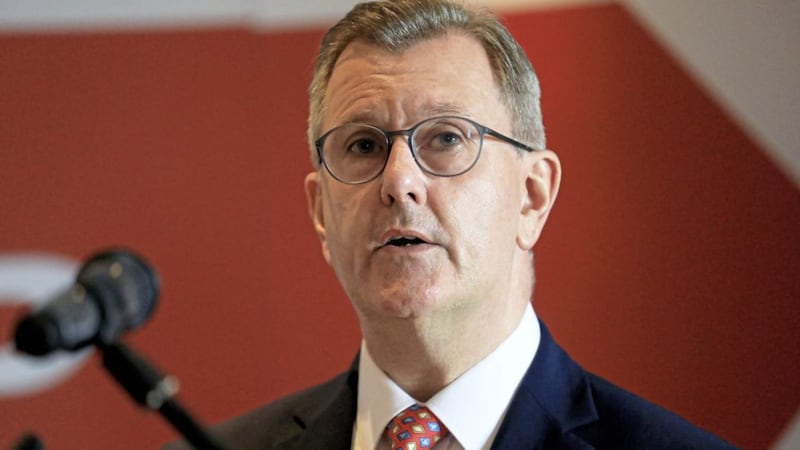In last week’s column I noted that Jeffrey Donaldson would be praying for good news over the weekend.
The latest LucidTalk quarterly poll was due to be published on Saturday morning and Donaldson was hoping to see a significant rise in support levels for the DUP, which had fallen from 23 per cent last October to 16 per cent at the end of May.
The DUP clearly believed these figures to be reasonably accurate because they dumped both Arlene Foster and Edwin Poots within a matter of weeks of the February stats indicating a fall to 19 per cent and then pinned all their hopes on Donaldson again—having rejected him the first time. And while some within the DUP are now trying to find fault with LucidTalk’s polling methods (after the latest poll indicated a further drop to 13 per cent) I know from conversations with a number of party members and representatives that the ongoing fall reflects their own sense of ‘what’s happening on the ground.’
Jim Allister, above the DUP on 14 per cent, is very content with the poll. As is Doug Beattie, because the UUP, for the first time in about 20 years, is polling higher than the DUP (at 16 per cent). The scale of the DUP’s decline since last October may seem surprising, yet it’s the sort of decline you would expect from a party which has endured a civil war and a volume of leakage which would sink a battleship. Indeed, it’s exactly the same scale of decline—albeit over a much shorter period—the UUP endured between 1998 and 2005.
On Tuesday morning Donaldson trotted out the usual line for this sort of occasion, saying that the ‘real poll’ was next spring’s Assembly election and that he was focused on that rather than opinion polls. Fair enough, but it’s still hard to ignore a string of opinion polls telling the same story over and over again. It’s even more difficult to ignore them when he was supposed to be the answer to the DUP’s ongoing problems—as indicated by the polls—and provide the evidence of recovery for an election which is just eight months away.
He does have one thing in his favour, though: but only if it’s something that actually matters to a majority of unionists any more. In times of crisis there is a tendency for unionists to rally behind the party which they think is most likely to win seats. That’s why the DUP—during the St Andrews negotiations—supported an arrangement under which the largest party in the Assembly (rather than the largest party of the largest designation) would provide the first minister. It was an arrangement which has allowed the DUP to play the ‘vote for us to stop a SF first minister’ card in the last four elections.
Donaldson is already playing it—within hours of the polling figures, in fact. Some DUP members are also dropping hints that a SF first minister could also mean a SF justice minister: obviously hoping a double whammy of fear will make voters forget all the other unionist parties when it comes to first preferences. But here’s the thing, how many unionists still buy that argument, particularly when a SF deputy first minister has precisely the same veto and slowing-down powers as a DUP first minister.
Jim Allister argues there can’t be a SF first minister unless a unionist party agrees to nominate a deputy. The UUP, meanwhile, argue that 14 years of DUP first ministers (Paisley, Robinson, Foster, Poots and now Givan) has done nothing to prevent SF dictating the agenda far too often, so why reward the party with the job again? The Loyalist Communities Council, Orange Order and younger elements of loyalism are eager to bring down the Assembly altogether, particularly if Donaldson seems keen to consider some sort of soft landing on the protocol.
I didn’t need an opinion poll to tell me unionism is increasingly divided. I’ve been writing about those divisions for a number of years. So, the LucidTalk results came as no surprise. Indeed, they highlight a question I’ve raised a few times since the summer of 2017 (when the DUP cut its parliamentary deal with the Conservatives): who actually speaks for unionism? The UUP has a two-point lead over the DUP. The TUV has a one-point lead. And while the DUP has fallen behind, it is still within recovery distance of both.
There is no clear leader, though. No dominant party—as the DUP was between 2005 and 2019. And the absence of a dominant party makes it harder to predict where unionist votes will go next spring. I still think the DUP will do better than these figures suggest: that said, I didn’t expect them to collapse to 13 per cent so quickly.








